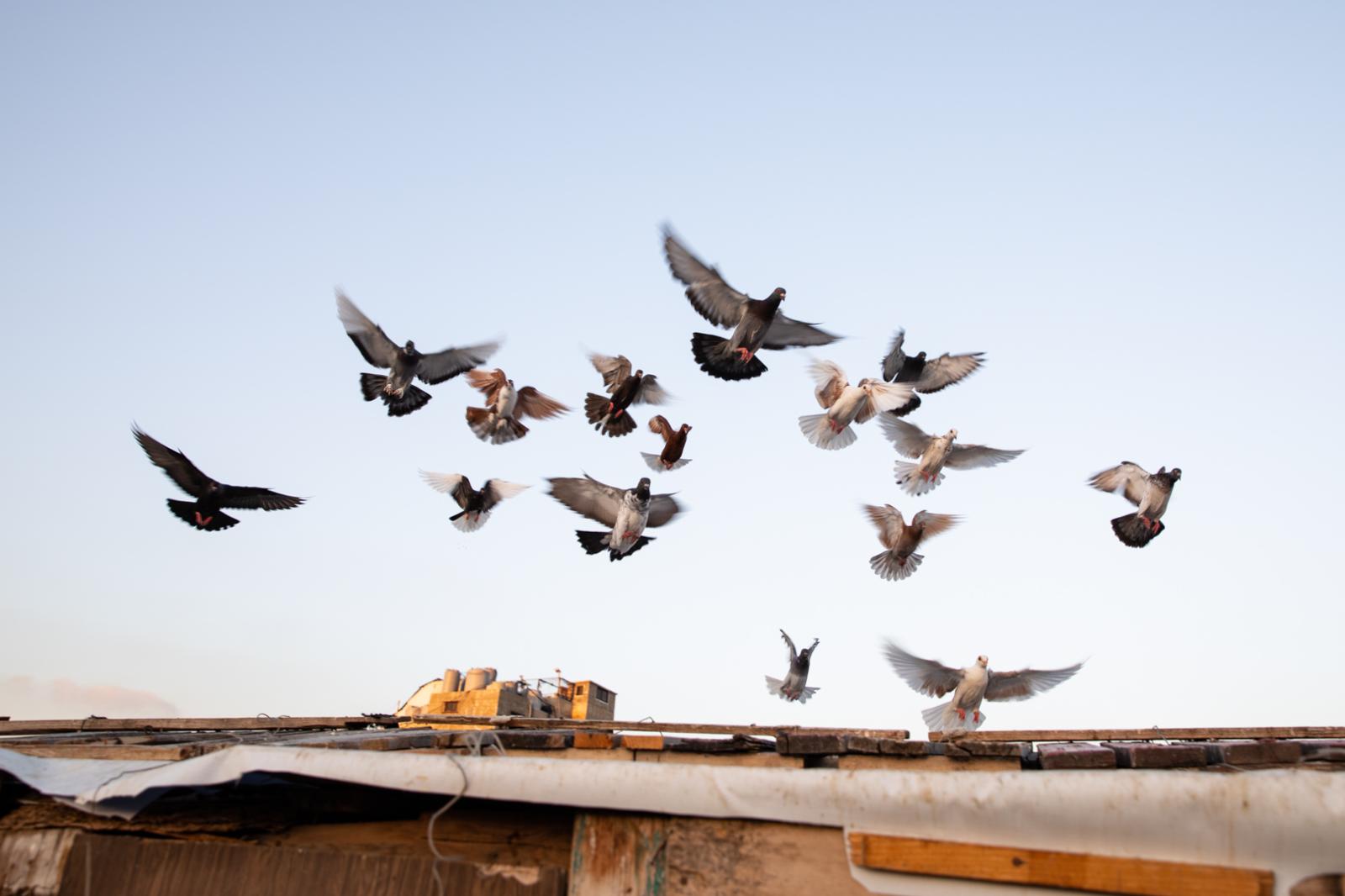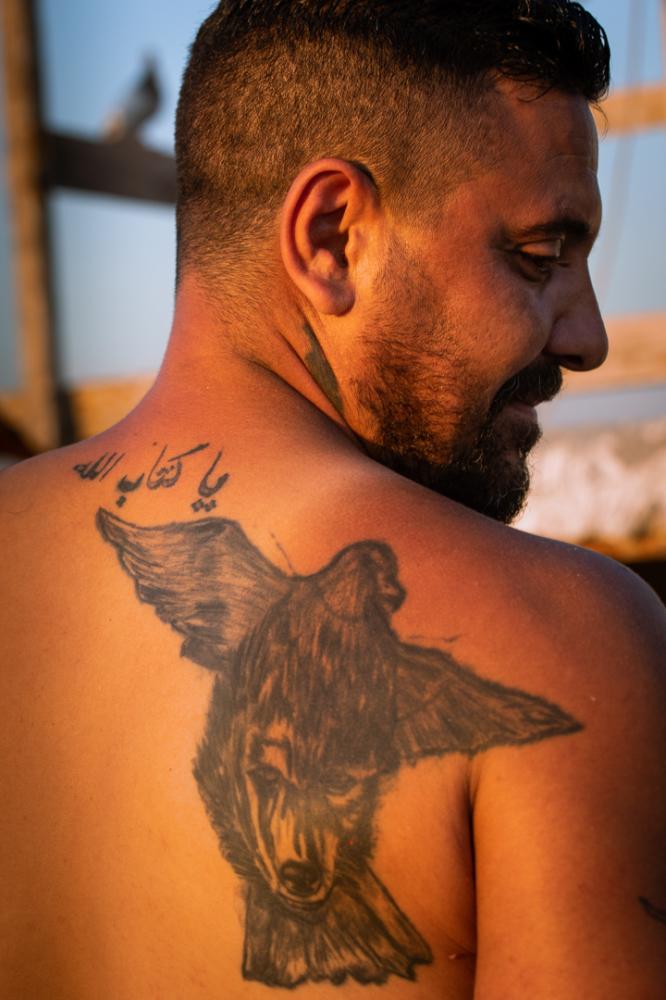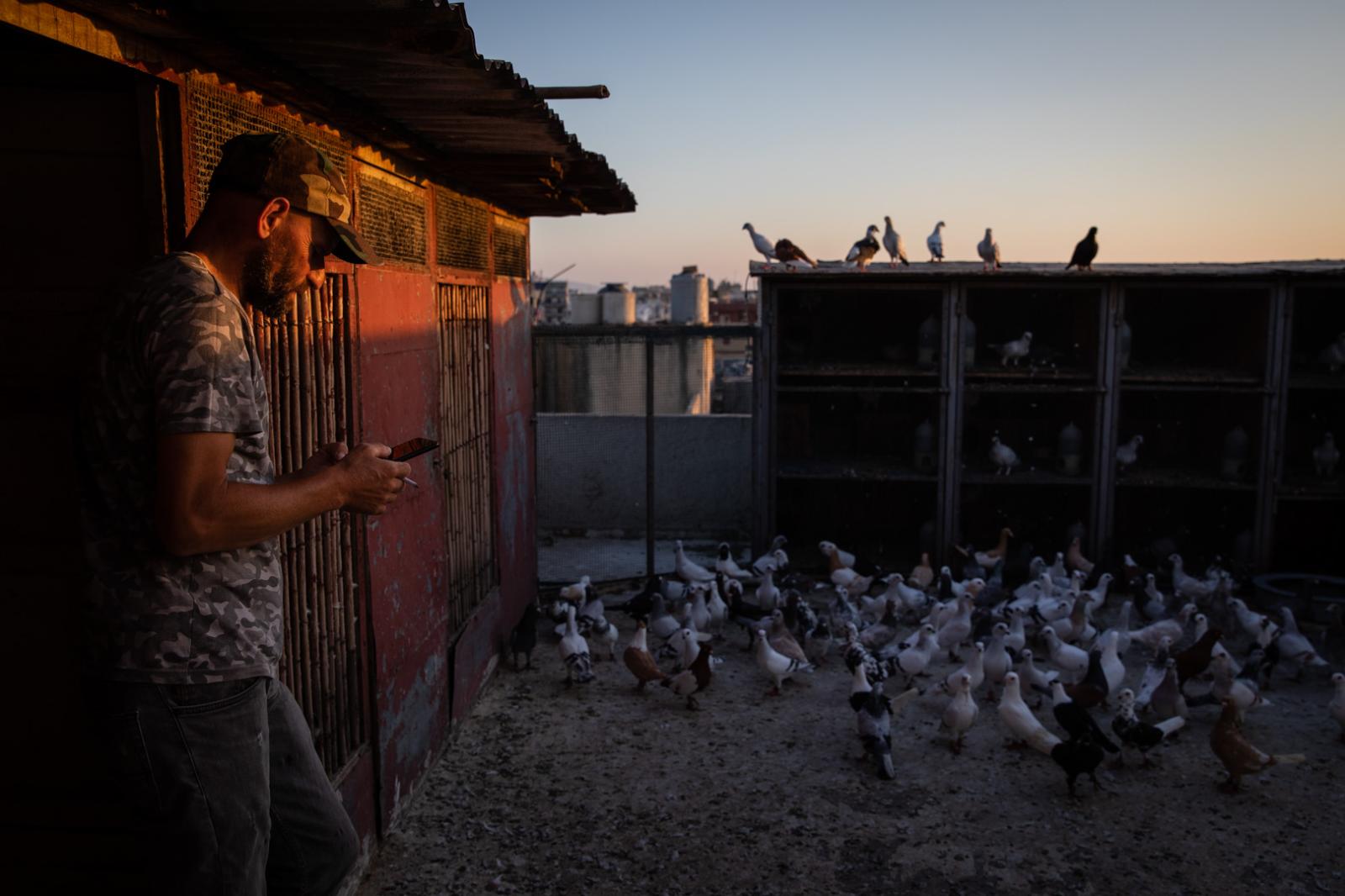Public Project
Pigeon-Keepers of Lebanon
Most pigeon-keepers are men, but the practice becomes a communal affair, as most birds are housed on the roofs of family homes and flown daily in dense urban neighborhoods. Palestinian brothers Mohammed and Ibrahim spend every evening on the roof of their apartment building in Burj el-Barajneh refugee camp, drinking tea, talking, smoking, and watching their birds, as friends come and go. Dotted with potted plants, chairs and tea glasses tucked into odd corners, their roof is an oasis of calm from the hustle and bustle of their 7-day work week.
With whistles, claps and the warble of a caught female dove, along with visual cues like swinging ropes, pigeon keepers fly their birds from their rooftops and then coax them to return home. This flight is a daily ritual and a moment where, eyes on the sky, the problems below can momentarily disappear. The roof becomes a sacred space where pigeon-keeping’s labor of love transcends the constrictions of crowded urban settlements, refugee lived realities, the summer heat, and the daily struggle of life within Lebanon’s ongoing economic crisis.
Palestinian sisters Nisreen and Nirmeen often climb to the roof of the tallest building in Shatila refugee camp at the periphery of Beirut. There, far above the gaze of nosy neighbors, they savor the sunset and call out to the pigeons that their neighbors fly at the close of each day. “Sitting here is like meditation,” said Nisreen. “You don’t even need to do breathing exercises or yoga. You just watch the birds and it’s like…(exhales) all the stress is gone, and you relax.”
Watching the men who keep pigeons is to witness tenderness. In the life lines of their tanned and wrinkled hands is a story of passion, tradition and longing for a former home or a way of life that used to be. Eyes on their birds, Lebanon’s pigeon-keepers wonder if one day, they may fly away too.
1,662










